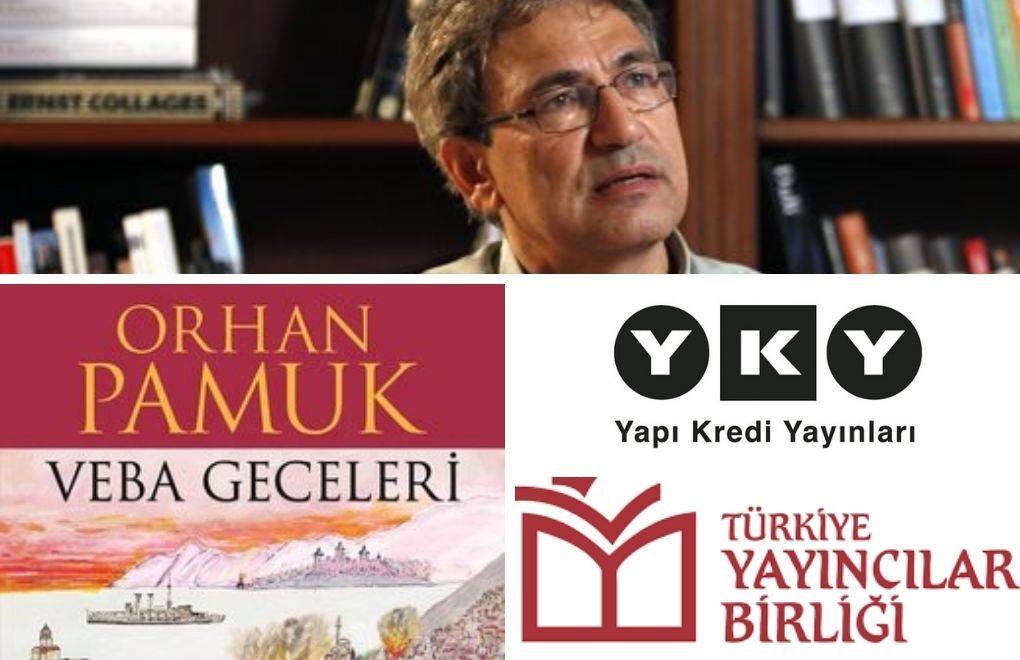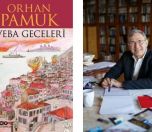Click to read the article in Turkish
The Yapı Kredi Publishing House (YKY) has released a written statement about the investigation launched against Nobel-winning writer Orhan Pamuk over his novel "Nights of Plague" (Veba Geceleri).
After a criminal judgeship of peace has accepted the appeal against his non-prosecution, the prosecutor's office has launched a second investigation against Pamuk on the grounds that he allegedly "insulted Mustafa Kemal Atatürk, the founder and first President of the Republic of Turkey, and the flag of Turkey, thereby provoking the public to hatred and hostility."
The YKY, the publisher of the book in Turkey, has said, "We see with concern and sorrow that an investigation has been launched against Orhan Pamuk's novel 'Nights of Plague', published by our publishing house, for 'insulting Mustafa Kemal Atatürk and the Turkish flag'."
Expressing "pride" in being the publisher of Orhan Pamuk, who won the Nobel Prize in Literature, the YKY has recalled that after the novel was published, there were allegations of humiliating remarks about Atatürk; Pamuk dismissed these allegations with the below statement:
"In the 'Nights of Plague', which I worked on for 5 years, there is no disrespect for the heroic founders of the nation states founded from the ashes of empires or for Atatürk. On the contrary, the novel was written with respect and admiration for these libertarian and heroic leaders.
"As the ones who read the book have seen, Kolağası Kâmil is a person loved by people and is a positive character in all aspects."
Accordingly, the YKY has declared to the public that "it will continue standing with arts, artists and creativity, as has always been the case."
'Turning into de facto bans on books'
The Turkish Publishers Association has also released a statement about the investigation launched against Nobel laureate Orhan Pamuk.
The Association has noted that "court cases such as this pose a huge burden on the time and resources of publishers and writers, creating an atmosphere of threat and tension." It has underlined:
"This process leading writers and publishers to self-censorship makes it difficult to publish legitimate works.
"Protecting freedom of expression and publication and not interfering with these freedoms is a constitutional right. Protecting these freedoms is one of the determining factors of being a democratic society.
"We need a more caring attitude from the courts to protect and esteem our freedoms, one of our most important gains.
"We, as the Turkish Publishers Association, are against all types of attempted bans targeting freedom of expression and publication.
"We recall that such interferences, which turn into de facto bans on books, harm the principle of democratic society and we call on the authorities to take concrete steps to immediately end the investigation that was launched against Orhan Pamuk due to his book."
What happened?
The Criminal Judgeship of Peace has accepted the appeal against the decision of non-prosecution given for a criminal complaint against Orhan Pamuk, a Nobel laureate in literature, over his novel "Nights of Plague" (Veba Geceleri). With the appeal accepted by the judgeship, the prosecutor's office has once again launched an investigation against the novelist.
As reported by T24 news website, Tarcan Ülük, a lawyer from the İzmir Bar Association, applied to the İzmir Chief Public Prosecutor's Office and alleged that Orhan Pamuk, in his book "Nights of Plague", insulted Mustafa Kemal Atatürk, the founder and first President of the Republic of Turkey, and the flag of Turkey, thereby provoking the public to hatred and hostility.
Ülük also cited Orhan Pamuk's remarks to a newspaper from Switzerland in the period when he received the Nobel Prize in Literature.
While the İzmir Chief Public Prosecutor's Office launched an investigation, the file was sent to the İstanbul Chief Public Prosecutor's Office as the publishing house of the book is located in İstanbul.
In his statement at the prosecutor's office, Pamuk said that "he did not write texts implying Veteran Mustafa Kemal Atatürk in his book." Sharing details about the book's content, Pamuk did not accept the charges.
Accordingly, the prosecutor's office concluded that there was no direct insult at Atatürk in the book and the character in the book is described as a person loved by people. The file ended in non-prosecution.
Lawyer Ülük appealed against this decision.
Examining the appeal, the Criminal Judgeship of Peace on Duty has said that there are some remarks in some parts of the book that can be characterized as insulting and that Orhan Pamuk should be put on trial as part of the file in its current form. The judgeship has accepted Ülük's appeal. (KÖ/SD)








